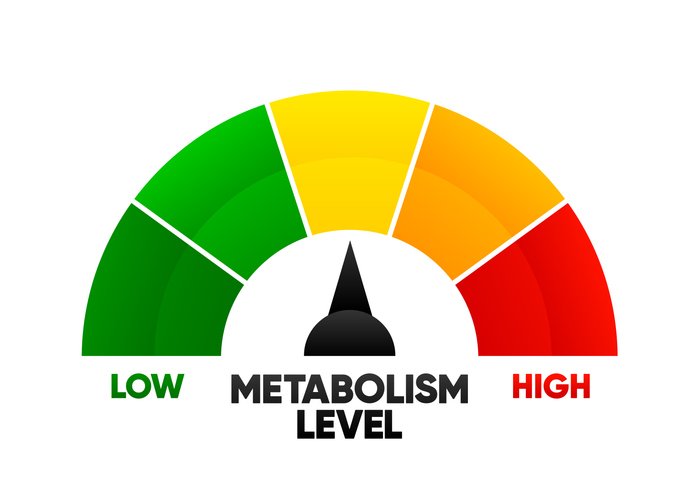Challenging the Cholesterol Myth – A New Study on Lean Mass Hyper-Responders and Heart Disease Risk
Cardiovascular disease remains a leading cause of death worldwide, with cholesterol often cast as the villain in this ongoing health saga. For decades, the medical community has held firm to the belief that high levels of low-density lipoprotein cholesterol (LDL-C), often dubbed "bad cholesterol," inevitably spell disaster for heart health. But what if this narrative isn't the full story? A groundbreaking new study conducted by a team of innovative researchers is turning this conventional wisdom on its head, particularly for a unique group known as lean mass hyper-responders (LMHRs). I wrote about lean mass hyper-responders in a previous post, which you can read here. Published in April 2025, this research dives into the effects of ketogenic diets on cholesterol and plaque buildup, offering fresh insights that could reshape how we assess cardiovascular risk. Let's explore these findings and why they matter.
The study focuses on a fascinating cohort: 100 individuals following a ketogenic diet (KD), a very low-carbohydrate regimen that shifts the body into a state of ketosis. These participants, identified as lean mass hyper-responders or near-LMHRs, exhibit a peculiar metabolic response—sky-high LDL-C levels, often exceeding 190 mg/dL, alongside elevated high-density lipoprotein cholesterol (HDL-C) and low triglycerides. Unlike the typical population associated with high cholesterol—those with obesity or metabolic disorders—these individuals are lean, with an average body mass index (BMI) of 22.5 kg/m², and metabolically healthy. Over one year, the research team tracked these participants using advanced coronary computed tomography angiography (CCTA) to measure plaque progression in their arteries. The results? They defy expectations.
One of the most striking findings is that neither LDL-C nor its associated biomarker, apolipoprotein B (ApoB), predicted plaque accumulation in this group. Despite LDL-C levels averaging 254 mg/dL—far above what most cardiologists would consider safe—the majority of participants showed no or minimal increases in coronary artery disease (CAD). Some even exhibited regression, with six participants showing decreases in total plaque scores. The median change in percent atheroma volume (PAV), a measure of plaque coverage in the arteries, was a mere 0.8%—a figure consistent with normal aging rather than rampant disease progression, which challenges the long-held assumption that high LDL-C is a universal driver of atherosclerosis.
Instead, the study points to a different predictor of plaque buildup: baseline plaque itself. Participants with pre-existing coronary artery calcium (CAC) scores or other plaque metrics at the study's start were far more likely to see progression, regardless of their LDL-C or ApoB levels. In the words of the researchers, "plaque begets plaque"—a phrase that encapsulates a key takeaway: in this population, it's not the cholesterol floating in the blood that dictates risk, but the condition of the arteries before adopting the diet. This finding held strong across statistical analyses, with Bayesian inference reinforcing that LDL-C and ApoB were six to ten times more likely to have no association with plaque changes than to drive them.
Why does this matter? For starters, it highlights the importance of context in cardiovascular risk assessment. LDL-C and ApoB are established risk factors for atherosclerosis, but their impact appears to depend heavily on the underlying metabolic state. In metabolically unhealthy individuals—those with obesity, insulin resistance, or type 2 diabetes—high LDL-C often signals trouble. However, for lean mass hyper-responders, who are lean and insulin-sensitive, the same cholesterol elevations seem to carry a different implication. The study suggests that their high LDL-C is a dynamic response to carbohydrate restriction, not a genetic flaw like familial hypercholesterolemia, and it occurs within a unique lipid triad: high HDL-C, low triglycerides, and high LDL-C. This metabolic fingerprint may reflect a distinct physiological state tied to energy flux rather than disease.
The implications of these findings are profound, particularly for those on ketogenic diets. Doctors and patients alike have long grappled with the clinical conundrum of ketogenic diet-induced LDL-C spikes. Traditionally, such elevations might prompt aggressive interventions like statins. Yet, this study suggests that for lean mass hyper-responders, chasing cholesterol numbers might miss the mark. Instead, modern imaging tools like coronary computed tomography angiography or coronary artery calcium scoring could offer a more accurate picture of risk. For example, lean mass hyper-responders with a coronary artery calcium score of zero at baseline—a majority in this study—appear to be at low risk for plaque progression, even with LDL-C levels soaring past 500 mg/dL in some cases. By contrast, those with existing plaque may warrant closer monitoring, regardless of their lipids.
This isn't to say LMHRs are immune to heart disease. The study observed heterogeneity in outcomes, with some participants showing plaque advancement. However, the lack of correlation with LDL-C or ApoB suggests other factors—like inflammation, lipoprotein quality, or past metabolic damage—might be at play. The researchers call for future studies to unravel these mechanisms, emphasizing that personalized approaches, not one-size-fits-all cholesterol targets, are the way forward. As Dave Feldman, a key contributor to the study, notes, these data are a "giant leap forward" for low-carb communities, empowering doctors and patients to make informed decisions based on imaging rather than lipid panels alone. For more excellent information from Dave, click here.
The study's grassroots origins add another layer of intrigue. Crowdfunded by citizen scientists and driven by a team including Feldman, Dr. Adrian Soto Mota, and cardiac imaging expert Professor Matthew Budoff, it's a testament to the power of curiosity and collaboration. These researchers aren't just challenging dogma—they're rewriting the playbook on how we study unique populations. Lean mass hyper-responders, with their extreme lipid profiles and metabolic health, represent a natural experiment that tests the lipid-heart hypothesis in ways traditional research hasn't. As Professor Budoff underscores, knowing whether a patient has underlying plaque can guide treatment far better than lipid levels alone.
Critics might point to limitations, like the study's one-year duration or lack of a control group. Yet, the use of high-resolution coronary computed tomography angiography and a zero dropout rate bolster its credibility. The findings align with prior work by the team, which showed LMHRs had no greater baseline plaque than matched controls despite years of elevated LDL-C. This consistency strengthens the case that, for this group, high cholesterol isn't the ticking time bomb it's often made out to be.
So, what's the takeaway? This study doesn't dismiss cholesterol's role in heart disease outright—it reframes it. For lean mass hyper-responders on ketogenic diets, LDL-C and ApoB may not be the villains they're assumed to be. Instead, pre-existing plaque emerges as the real predictor of risk, urging a shift toward imaging-based assessments. It's a call to rethink cardiovascular health through a personalized lens, one that respects metabolic diversity over blanket assumptions. As the team behind this work urges, share these findings, spark discussions, and push for more research. The cholesterol story is far from over—and for LMHRs, it's just getting interesting.







